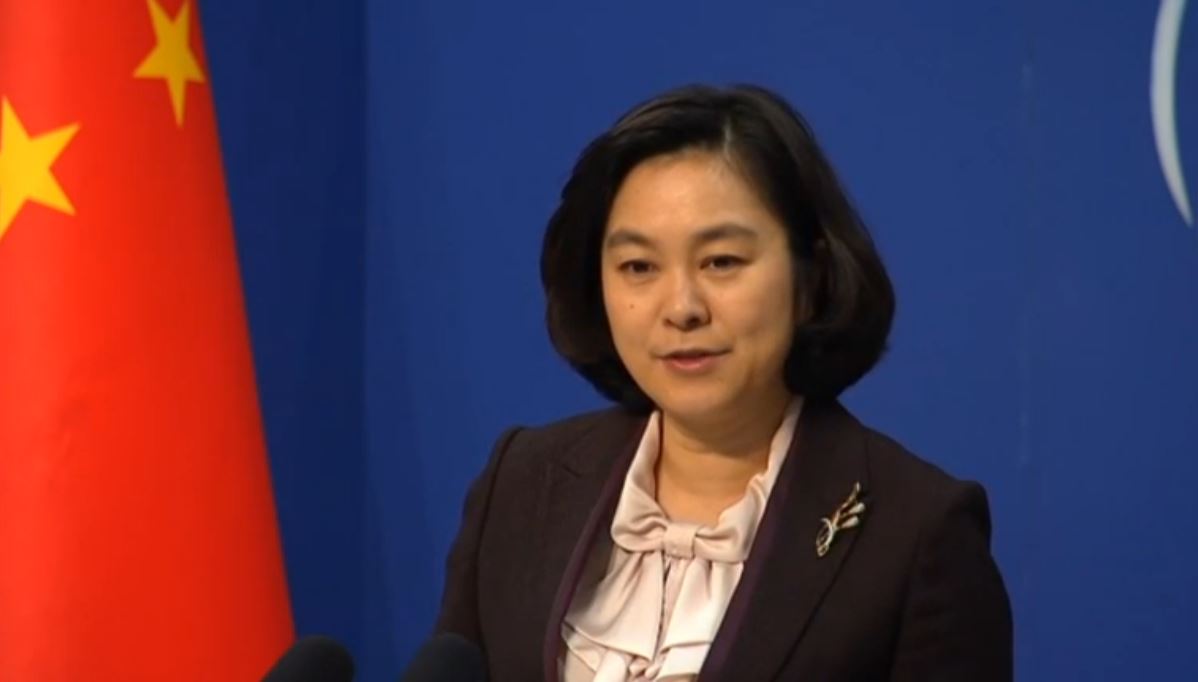
(Eagle News) — China said it is committed to “peacefully resolving the South China Sea dispute through dialogue and negotiation” with sovereign states like the Philippines, even as it stressed its right to put military equipment on its alleged territories in the disputed seas.
In a statement, China’s Foreign Ministry spokeswoman Hua Chunying said direct negotiations with the Philippines have “lowered the temperature” in the South China Sea maritime dispute.
But she maintained that China has the right to deploy defense equipment in the Spratly Islands.
“What I want to say is that the Spratly islands are Chinese sovereign territory. China has the right to deploy necessary and appropriate defence equipment,” she said.
“China has always committed to peacefully resolving the South China Sea dispute through dialogue and negotiation with directly sovereignty countries, including the Philippines.
Like what you can see, at present, the South China Sea issue has been progressively lowering the temperature and came back to normal path thanks to the joint efforts by China and relevant countries, including the Philippines, this is in line with the common interests of China and the Philippines, and of regional people,” she explained.
Defense Secretary Delfin Lorenzana said that although the relations between China and the Philippines had been “warming,” the Philippine government is still duty-bound to protest, question or seek clarification” from China.
Department of Foreign Affairs Secretary Perfecto Yasay Jr., said he has already sent three or four note verbales to China, the recent of which is to express concern over recent militarization of the Spratlys. particularly its missile installations.
“Notwithstanding the warming of relations between our countries, the Philippine government would be remiss in its duty to protect its national interest if it does not protest, question and seek clarification from China on the presence of weapons in the Spratlys,” Lorenzana said in a statement.
“The actions of China in militarizing those disputed features are very troubling. They do not square with the Chinese government’s rhetoric that its purpose is peaceful and friendly.”
Lorenzana released the statement hours before President Duterte was scheduled to meet with Chinese Vice Foreign Minister Liu Zhenmin.
The US-based Center for Strategic and International Studies released photos in December that it said showed China appeared to have built large anti-aircraft guns and other weapons systems at each of its seven outposts in the Spratlys.
China said after the images were released that the deployment of weapons in the South China Sea had “nothing to do with militarisation”, and called the construction of defensive facilities “normal”.
China claims most of the South China Sea, even waters and outcrops approaching the coasts of the Philippines and other Southeast Asian neighbours.
An international tribunal last year ruled that China’s claims over the sea over the sea, through which more than five trillion dollars in global shipping trade passes, had no legal basis.
Even though China is a signatory to the UN Convention on the Law of the Sea, on which the case was based, it rejected the ruling.
The legal suit was filed by the administration of Duterte’s predecessor, Benigno Aquino.
But when the Philippines won the case, Duterte was already president and pursuing closer ties with China. He vowed not to “taunt or flaunt” the ruling.
But his administration said the ruling is to be used also in talking to China on the peaceful resolution of the maritime dispute.
Filipino fishermen havenot been barred by China from entering the Scarborough Shoal since Mr. Duterte has had talks with Chinese President Xi Jinping last year. (with reports from Reuters, Agence France Presse)







